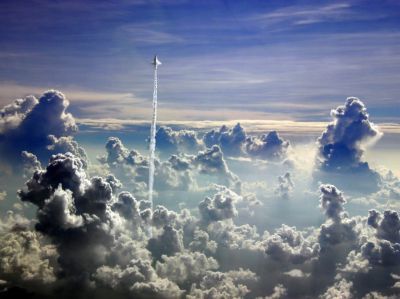Virgin Galactic readies maiden suborbital flight

British billionaire Sir Richard Branson will unveil a craft on Monday that could soon carry tourists on an out-of-this-world trip into space -- for a mere 200,000 dollars.
British billionaire Sir Richard Branson will unveil a craft on Monday that could soon carry tourists on an out-of-this-world trip into space - for a mere 200,000 dollars.
The lunar-like landscape of the Mojave desert between Los Angeles and Las Vegas will stage the roll-out of Virgin Galactic's SpaceShipTwo (SS2), the brain child of aerospace engineer Burt Rutan.
SS2, which can carry six passengers and two pilots, plans to begin test flights next year and start commercial flights between 2011 and 2012.
Virgin Galactic, owned by Branson's Virgin Group and Abu Dhabi's Aabar Investments, says about 300 adventurers from around the world have paid a total of 40 million dollars in deposits to guarantee spots on the carbon composite wonder machine.
Aerospace experts are already bidding on suborbital flights as the next generation of business travel.
Pamela Hurley-Moser, owner of Hurley Travel Experts in Portland, Oregon, is among 50 travel consultants chosen as accredited space agents for Virgin Galactic.
The company now boasts specials to Iceland, Thailand and, yes, space.
But space tourism, for now, remains an exclusive experience reserved for those willing to pay the hefty fee for a seat on the two-and-a-half-hour flights 100 kilometers (62 miles) above Earth.
"Just as aviation, and before that rail and automobile transportation, first a few will go to space, but ultimately, over the next hundred years or so, spaceflight will become commonplace," said Charles Chafer, chief executive of Space Services, which specializes in space funerals.
In 2007, the Houston, Texas company released into space the ashes of "Star Trek" star James Doohan.
But Hong Kong to London in three hours?
"This is possible," Chafer told AFP. "And the history of human transportation suggests that when it is possible to shorten travel times, markets grow to enable that activity."
Space Services spokeswoman Susan Schonfeld noted that the company now takes the ashes of hundreds of people at a time into space, up from about 27 people in 2007.
"Through the years, I have had the opportunity to speak to hundreds and hundreds of people from all over the world," she noted. "We have launched very famous people... but 99 percent of the people are everyday people like myself that have a very deep sense of exploration I do believe is in all of us."
For Chafer, what today seems like an indulgence for adventurous millionaires will spur the construction of facilities for a solar power satellite system, asteroid exploration, mineral extraction and research of compounds cheaper to produce in microgravity.
"Transportation is an enabling tool," the aerospace executive insisted.
"Once we have routine transportation into suborbital and orbital space we will see business travel and package delivery times reduced and we will begin to see construction of large facilities in Earth orbit."
For Monday's launch, the WhiteKnightTwo mothership, which boasts a wingspan of 140 feet (42.7 meters), will carry the smaller SS2 rocket ship 50,000 feet (15.2 kilometers) into the sky before it detaches and blasts up to the brink of space.
There, the tourists can experience five minutes of weightlessness in a cabin with circular windows on the sides and the ceiling.
"As humanity eventually moves to other planets and bodies throughout the solar system, we will of course fly into - and eventually live in - space," predicted Chafer.
Join our commenting forum
Join thought-provoking conversations, follow other Independent readers and see their replies
Comments